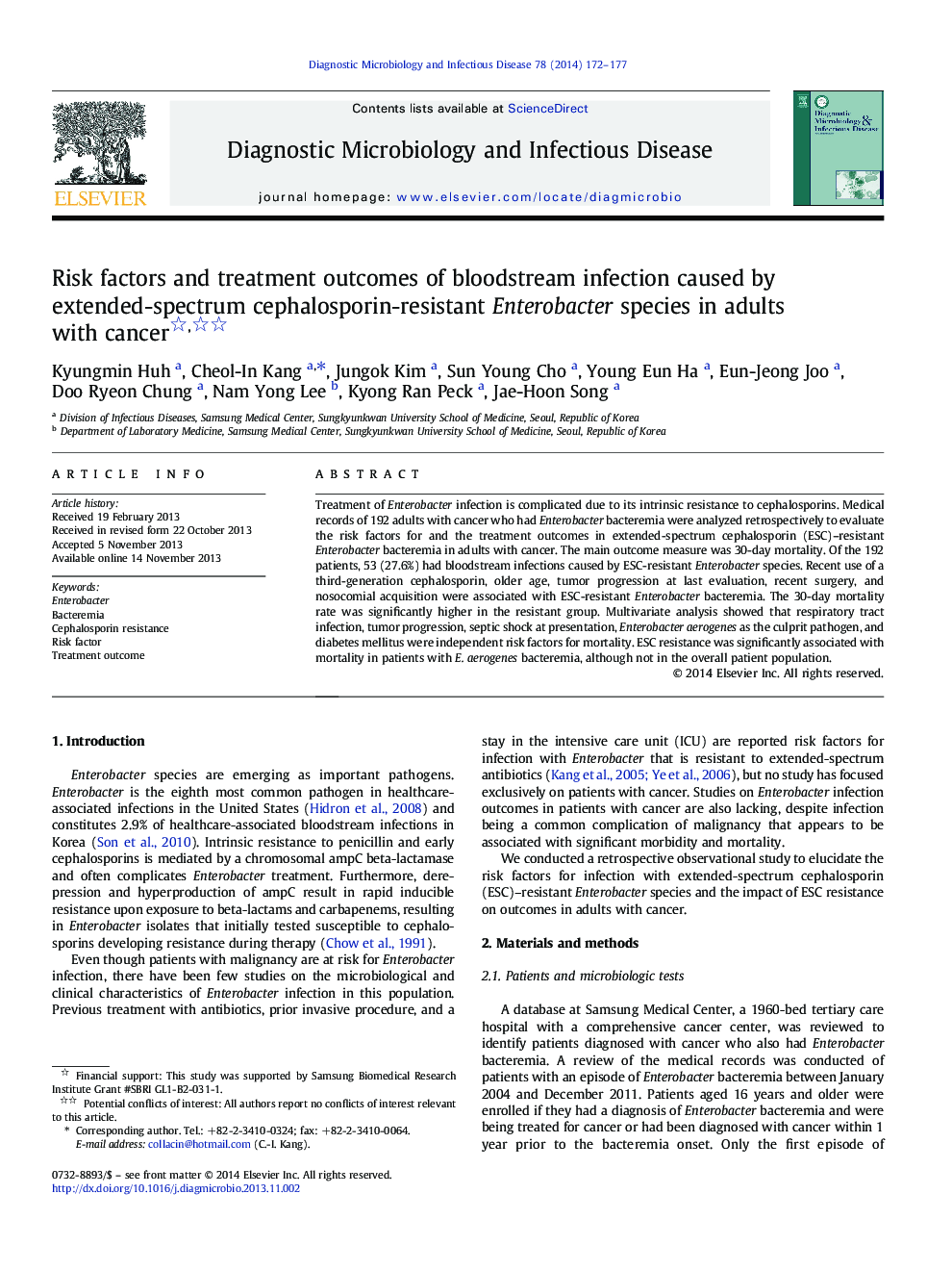| Article ID | Journal | Published Year | Pages | File Type |
|---|---|---|---|---|
| 6115912 | Diagnostic Microbiology and Infectious Disease | 2014 | 6 Pages |
Abstract
Treatment of Enterobacter infection is complicated due to its intrinsic resistance to cephalosporins. Medical records of 192 adults with cancer who had Enterobacter bacteremia were analyzed retrospectively to evaluate the risk factors for and the treatment outcomes in extended-spectrum cephalosporin (ESC)-resistant Enterobacter bacteremia in adults with cancer. The main outcome measure was 30-day mortality. Of the 192 patients, 53 (27.6%) had bloodstream infections caused by ESC-resistant Enterobacter species. Recent use of a third-generation cephalosporin, older age, tumor progression at last evaluation, recent surgery, and nosocomial acquisition were associated with ESC-resistant Enterobacter bacteremia. The 30-day mortality rate was significantly higher in the resistant group. Multivariate analysis showed that respiratory tract infection, tumor progression, septic shock at presentation, Enterobacter aerogenes as the culprit pathogen, and diabetes mellitus were independent risk factors for mortality. ESC resistance was significantly associated with mortality in patients with E. aerogenes bacteremia, although not in the overall patient population.
Related Topics
Life Sciences
Immunology and Microbiology
Applied Microbiology and Biotechnology
Authors
Kyungmin Huh, Cheol-In Kang, Jungok Kim, Sun Young Cho, Young Eun Ha, Eun-Jeong Joo, Doo Ryeon Chung, Nam Yong Lee, Kyong Ran Peck, Jae-Hoon Song,
